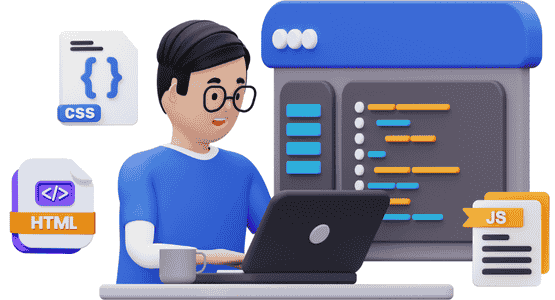In today’s fast-paced digital world, choosing the right programming language for web development is more important than ever. With a wide variety of options available, each language serves a specific purpose and offers distinct features that cater to various aspects of web development—from designing interactive front-end interfaces to building powerful back-end systems. Whether you’re just starting your journey as a web developer or looking to expand your skill set, understanding the strengths and applications of each language is key. Here’s a comprehensive overview of the top 7 programming languages every aspiring web developer should consider exploring:

JavaScript is the cornerstone of modern web development. It’s versatile and essential for creating dynamic and interactive web applications. Paired with libraries and frameworks like React, Angular, or Vue.js, JavaScript powers countless websites. Furthermore, with Node.js, JavaScript has also established itself as a robust server-side language.
Python’s simplicity and readability make it a favorite among beginners and seasoned developers alike. While traditionally associated with data science and AI, frameworks like Django and Flask have made Python a strong contender for web development.
Despite being one of the older languages, PHP remains a dominant force in web development, powering over 75% of websites, including WordPress. PHP is particularly effective for server-side scripting and dynamic content management.
Ruby, coupled with the Rails framework, is known for its efficiency and developer-friendly syntax. Often chosen for startups and rapid application development, Ruby prioritizes simplicity and productivity.
Java is a powerful and versatile language used in enterprise-scale web applications. Known for its performance and security, Java, combined with frameworks like Spring and Hibernate, is ideal for complex, high-traffic websites.
Developed by Microsoft, C# (pronounced C-sharp) is widely used for building web applications on the .NET framework. It’s a preferred choice for developers targeting Windows-based applications and enterprise solutions.
TypeScript is a superset of JavaScript that introduces static typing. It’s becoming increasingly popular for large-scale projects where maintaining code quality and readability is essential. Frameworks like Angular are built with TypeScript in mind.
The best programming language for web development depends on your project requirements, personal preferences, and career goals. Whether you’re creating a simple portfolio site or a complex e-commerce platform, these seven languages offer powerful tools to bring your vision to life. Dive into learning one or more of these languages to stay ahead in the competitive world of web development.